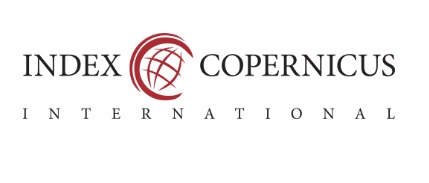Maharah Kalam Learning in Higher Education Using a Collaborative Learning Based on Constructivism Theory
Abstract
Aim: Speaking skills are one of the main skills that must be mastered by students and are one of the ultimate goals of learning a foreign language. On that basis, various strategies based on learning theories have been developed to facilitate the process of language acquisition and learning Arabic. One of these theories is the constructivism theory. Constructivism theory understands learning as a process of forming (constructing) knowledge by the learner themselves. This study aims to explore the implementation of constructivism theory in teaching speaking skills in the Arabic Language Education Department, State Islamic University of Salatiga.
Methodology: This study is a qualitative study with a case study. Data were collected through observation, in-depth interviews, and documentation. The analysis technique used is data triangulation. In the data analysis process, the researcher used the following steps: data collection, data reduction, data presentation, and drawing conclusions.
Findings: The implementation of collaborative learning based on constructivism theory in teaching speaking skills is carried out with several strategies, namely: role play and drama, three-step interview, debate, and language games.
References
Al Anshory, A. M., & Falaqi, M. R. (2023). Arabic calligraphy education programs at ibn al-bawwab calligraphy institute in madiun, indonesia. Journal of Calligraphy, 3(2), 15-23.
Alfayez, A. F. (2022). Saudi teachers’ self-efficacy in implementing the arabic language integrative curriculum. Education Research International, 2022(1), 6823935.
Al-Ushaili, A. a.-A. b. (1999). Ibrahim. Al-Nadhzariyyat al-lughawiyyah wa Talim al-Lughah al-Arabiyyah. Riyadh: Maktabah al-Malik Fahdh al-Wathaniyyah.
Barnard, Y., Bradley, M. D., Hodgson, F., & Lloyd, A. D. (2013). Learning to use new technologies by older adults: Perceived difficulties, experimentation behaviour and usability. Computers in human behavior, 29(4), 1715-1724.
Boon, M., Orozco, M., & Sivakumar, K. (2022). Epistemological and educational issues in teaching practiceoriented scientific research: roles for philosophers of science. European Journal for Philosophy of Science, 12(1), 16.
Ceka, A., & Murati, R. (2016). The role of parents in the education of children. Journal of Education and practice, 7(5), 61-64.
Fajriati, R. P., Khairani, D., Rozy, N. F., Husin, N., Wiyartanti, L., & Rosyadi, T. (2020). Towards the implementation of arabic language mobile apps learning: designed by user insight. In 2020 8th international conference on cyber and it service management (citsm) (p. 1-5).
Falaqi, R. (2020). Educational evaluation: Specifications of a good test. TSAQOFIYA: Jurnal Pendidikan Bahasa dan Sastra Arab, 2(2), 160-175.
Febriani, S. R., Wargadinata, W., Syuhadak, S., & Ibrahim, F. M. A. (2020). Design of arabic learning for senior high school in the 21st century. Jurnal Al Bayan: Jurnal Jurusan Pendidikan Bahasa Arab, 12(1), 1-21.
Giroux, H. A., & Bosio, E. (2021). Critical pedagogy and global citizenship education. In Conversations on global citizenship education (p. 3-12). Routledge.
Hachem, A. H. (2019). John dewey and the “problem” of the mundane: Implications for philosophy of educational administration. In The handbook of dewey’s educational theory and practice (p. 345-365). Brill.
Hamid, M. A., Hilmi, D., & Mustofa, M. S. (2019). Pengembangan bahan ajar bahasa arab berbasis teori belajar konstruktivisme untuk mahasiswa. Arabi: Journal of Arabic Studies, 4(1), 100-114.
Hermena, E. W., & Reichle, E. D. (2020). Insights from the study of arabic reading. Language and Linguistics Compass, 14(10), 1-26.
Jailani, M. (2021). Developing arabic media based on brain-based learning: improving mufrodat in school. Tadris: Jurnal Keguruan dan Ilmu Tarbiyah, 6(2), 349-361.
Musyarapah, M. (2017). The role of progressive philosophy in the curriculum based on john dewey’s theory. Al-Hayat: Journal of Islamic Education, 1(1), 32-39.
Riani Tri Utami, R. T. U. (2012). Application of constructivism theory in english language learning about ’regrets, apologies, and sympathy expression,’" riani tri utami (blog), february 28, 2012,. Retrieved from https://shorturl.at/amLdl
Rizal, F. M., Einosar, Y. A., Husein, M. G., Susanto, N. H. A., Nugroho, A. S., Firdausy, A., . . . Abdurrahim, I. H. (2024). Integrated curriculum: Optimizing the multiple intelligences of senior high school students in Indonesia. Journal of Advanced Research in Social Sciences and Humanities, 9(4), 1-16.
Rizal, F. M., Nurkholisoh, S., Ansharah, I. I., Alfiyah, N., Tricahyo, A., & Bahruddin, U. (2025). The impact of educational philosophy on the development of islamic education curriculum. Journal of Advanced Research in Social Sciences and Humanities, 10(1), 1-13.
Rufaiqoh, E., Rosyidi, A. W., Machmudah, U., Ibrahim, N. I. E., & Sodik, A. J. (2023). The learning of Arabic speaking skills with constructive theory perspective. Izdihar: Journal of Arabic Language Teaching, Linguistics, and Literature, 6(3), 243-252.
Siska Oktawidya Wati, M. Z., & Thahar, H. E. (2023.). "application of constructivism theory in the context of foreign language teaching," 2023.
Sutaman, S., & Febriani, S. R. (2021). Optimizing arabic speaking skills based on integration of learning theory framework in higher education. Arabiyat: Jurnal Pendidikan Bahasa Arab Dan Kebahasaaraban, 8(1), 75-89.
Utami, R. L. (2020). Desain kurikulum bahasa arab di Indonesia. EL-IBTIKAR: Jurnal Pendidikan Bahasa Arab, 9(1), 108-124.
Yin, R. K. (2011). Applications of case study research. Sage publications.

This work is licensed under a Creative Commons Attribution-NonCommercial 4.0 International License.












.png)










